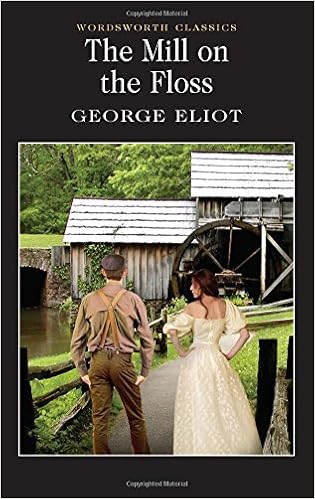
Introduction by and Notes by R.T. Jones, Honorary Fellow of the University of York This novel, based on George Eliot's own experiences of provincial life, is a masterpiece of ambiguity in which moral choice is subjected to the hypocrisy of the Victorian age. As the headstrong Maggie Tulliver grows into womanhood, the deep love which she has for her brother Tom turns into conflict, because she cannot reconcile his bourgeois standards with her own lively intelligence. Maggie is unable to adapt to her community or break free from it, and the result, on more than one level, is tragedy.
IT is not difficult to understand how the reader's attention may be attracted and his interest retained by a romance of the old chivalrous days whose very name and dim memory fill the mind with fascinating images, or by a novel whose high-born characters claim sympathy for their dignified sorrows and refined delights, or whose story is illuminated by the light of artistic culture and adorned with gems of rhetoric and fine fancy; but it is sometimes surprising to observe the favor which attends a simple tale of humble, unobtrusive, we might almost say insignificant people, whose plane of life appears nowhere to coincide with our own, and to whom romance and passion seem entirely foreign. Such a tale was "Adam Bede," whose great success as a literary venture hardly yet belongs to the chronicle of the past; such a tale is also "The Mill on the Floss," by the author of "Adam Bede," and such, we are confident, will also be its success.
Both books have many elements in common, but the second is the greater work of art, and indicates more fairly the scope and vigor of the author's mind. It is written in the same pure, hardy style, strong with Saxon words that admit of no equivocation or misunderstanding; it is illustrated with sketches of outward Nature and tranquil rural beauty, none the less vivid or truthful that they are drawn with the pen rather than the brush; and it is instinct with an honest, high-souled purpose. In these respects it resembles "Adam Bede," but in others it surpasses its predecessor. It displays a far keener insight into human passion, a subtler analysis of motives and principles, and it suggests a mental and a moral philosophy nobler in themselves and truer to humanity and religion. The pathos, too, is more genuine; for it is not based upon the mere utterance of grief or of entreaty, -- which the eloquent and the artful may, indeed, feign, -- but it is found in that skilful combination of material circumstance and spiritual influence which impresses upon the feeling, more than it proves to the reason, that the hour of heart-break is at hand, and which depends less for its effect upon the dramatic power of the imagination than upon the instant sympathy of the soul.
The principal fault which will be found with "The Mill on the Floss," and probably the only one, is, that the action moves too slowly and tamely in the first three or four books, and that the author shows an undue inclination to reflection and metaphysical digression. This will indeed, be a great objection to the superficial reader, who will impatiently regret that the tedious growth of a miller's boy and girl should usurp so many pages which might better have been filled with exciting incidents. But this very elaboration, tardy and idle though it may seem, was necessary to the completion of the author's plan, and -- in our eyes -- instead of being a blemish upon a fair story, is one of its principal charms. On this very account, however, the book will be less popular, and fewer persons will admire it wholly; but, as thoughtful readers draw near to the end of the narrative, and anxiously hasten on past trial, temptation, and conflict to the dreaded and yet inevitable downfall, muse mournfully over the agony and remorse that follow, and slowly close the volume upon tender forgiveness and final joy, they will be thankful for the far-seeing genius which, by this gradual process of education, enabled them to understand clearly the fateful scroll at last unfolded to them, and which, if they have read in the true spirit, has made them wiser and better.
No comments:
Post a Comment